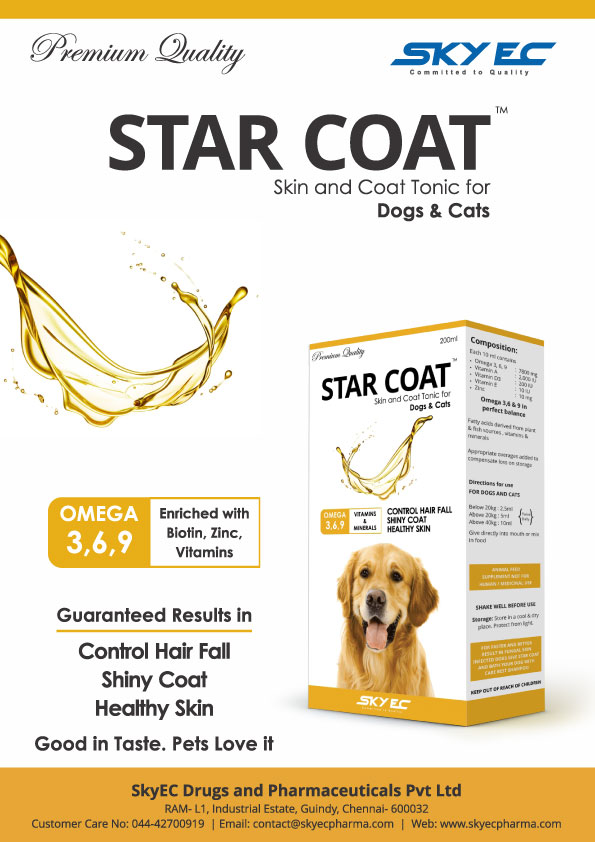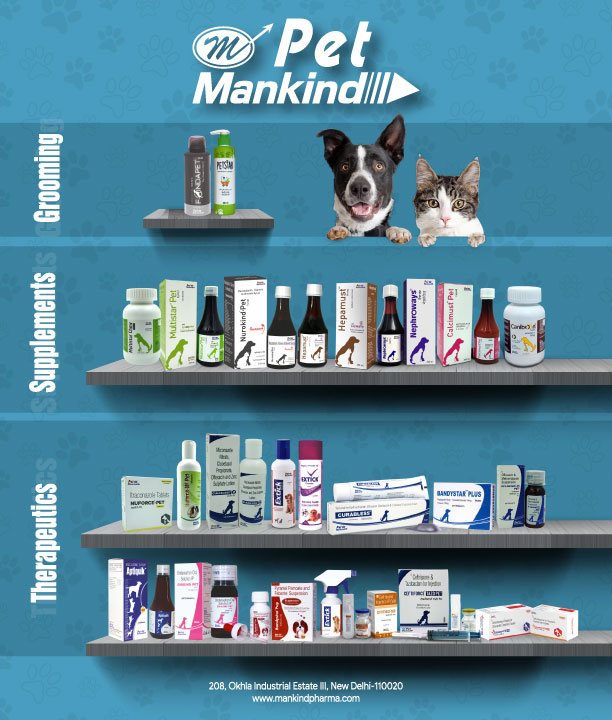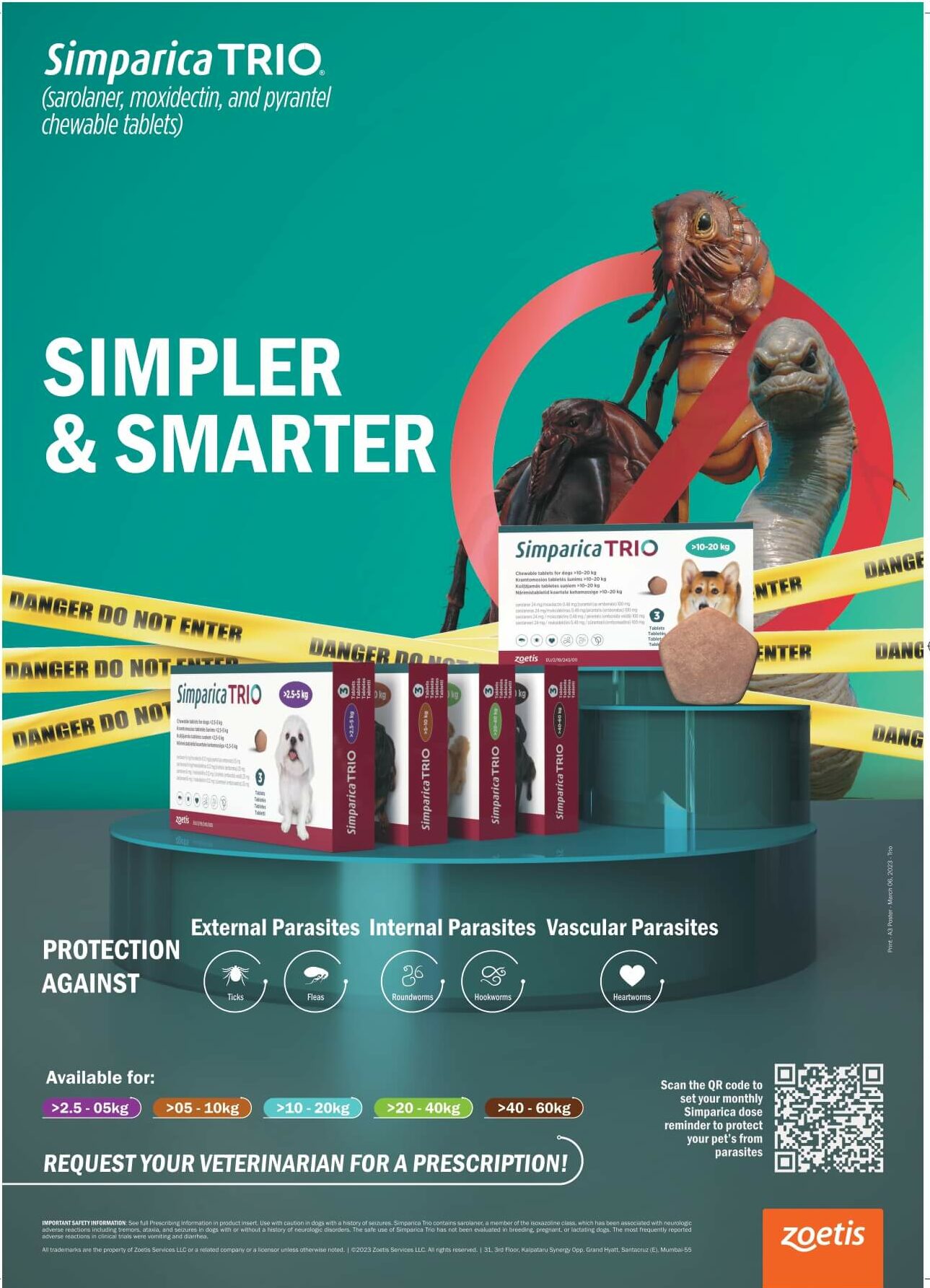
Dr. Tushar Gupta, BH MS, discusses an overview of the scope and holistic approach of the Homoeopathic line of treatment integrating with veterinary medicine
Homoeopathy is a system of medicine that involves treating the individual with highly diluted substances to trigger the body’s natural system of healing. Based on the specific symptoms, a homoeopathic physician will match the most appropriate medicine to each patient. Homoeopathic medicines are prescribed based on the physical, emotional, and genetic makeup that individualises the patient.
Veterinary Homoeopathy: Homoeopathy has been used in animals for at least 200 years. All animals respond to Homoeopathy, from pets to farm animals, horses to wild animals, birds to fish. In the last 20-30 years, Homoeopathy has been profoundly utilised by animal owners and veterinarians beyond the limitations of conventional medicine. A data collection study in cats and dogs was published in October 2010 by the Faculty of Homoeopathy. Many homoeopathic veterinary surgeons recorded data for 400 cats and 1500 dogs, spread across 12 months. The most commonly recorded canine conditions were dermatitis, arthritis, pyoderma, colitis, and fear. Overall, a major or moderate improvement was reported in 63%
of cats and 68% of dogs.”
Holistic Healing: Our endeavour is to work on the principle of combining the holistic healing approach of Homoeopathy with the veterinarian principles and nutritional protocols to treat the animals. The integrated approach includes working in sync with the primary care veterinarian, as needed, to cure or at least improve the quality of the pet’s life, if the case is, in fact, not curable or terminal. Homoeopathy is an effective and well-developed system of medicine to provide a rapid and gentle cure for your pet. It is advisable to initiate the course of the Homoeopathic line of treatment during the earlier course of the disease to receive a better response. Individualistic, case-specific Homoeopathic medicine needs to be administered to achieve a complete resolution of symptoms and ideal cure.
Veterinary Homeopathy Benefits:
- Homoeopathy is the safest line of treatment for pets without any side effects, with use of correct medicine in the optimal dosage
- The medicines are primarily prepared from plants, minerals, and synthetic substances and are easy to administer
- The dosage is highly diluted and contains minimal quantity of drug substance and hence rules the possibility of any adverse drug reaction
- The medicines are fairly economical as compared to antibiotics.
- Homoeopathic medicines are useful in treating multisystem diseases and are also effective against viral infectionsHomoeopathic medicines are very safe to use even in dairy animals without any residual harmful effect on milk, meat, dung, and urine.
- Homoeopathy is well suited to the approach of programmes of preventive medicine for the use in viral and bacterial conditions, including those for the control of diseases which have no conventional effective vaccines like Foot and Mouth disease, mastitis, Parvovirus in dogs, leptospiral jaundice in animals.
- Immunomodulatory nature of homoeopathic medicines helps in building up the animal’s immune system, with suppression of symptoms.
- Environment friendly, safe, no withdrawal period, and no side effects.
- Well suited for infertility, prepartum and post-partum care of animals. Used to reduce stress, strain, and suffering in pre-surgical and post-surgical cases and to attain quick recovery. Homoeopathy is very useful for quick healing of fractures as supportive treatment.
- Homoeopathic medicines are quite effective in treating separation anxiety and other behavioral disorders in pets and restores the general well-being in no time.
- The integration of homoeopathic medicines with surgical care uses the best of both worlds to create a comprehensive and more healthcare management system.
Common Ailments Treatment:

- Skin diseases like Mange (demodectic and sarcoptic), Urticaria, Alopecia, Allergic Dermatoses, Dermatitis, Ringworm etc.
- Neurological diseases like Canine Epilepsy, Brain injury, Paralysis, Chorea, Polyneuritis etc.
- Musculoskeletal diseases like Arthritis, Rickets, Osteomalacia etc.
- Respiratory diseases like acute and chronic rhinitis, Epistaxis, Laryngitis, Bronchitis, Pneumonia, Bronchiectasis, Emphysema, etc.
- Cardiovascular diseases like Cardiac arrythmia, Myocarditis, Pericarditis, Congestive cardiac failure etc.
- Urinary system diseases like Nephritis, Nephrotic syndrome, Urethritis, Cystitis, Haematuria, Urinary incontinence, Chronic Renal failure etc.
- Viral manifestations like Canine Distemper
- Behavioral disorders like chewing, separation anxiety, whining for attention, aggression etc.
- Endocrinal diseases like Thyroid disorders, Adrenal disorders, Diabetes etc.
Way Forward: While we discussed an overview of the scope and holistic approach of the Homoeopathic line of treatment
integrating with veterinary medicine, we would discuss the real-time benefits of Homoeopathic medicines in subsequent
articles. We would discuss the benefits and positivity observed in the beneficiaries/treated cases during the last 15 years of professional experience as a physician. As they say, “A dog is the only thing on earth that loves you more than he loves himself.” Let us build a symbiotic relationship as a pet parent and caretaker to collaboratively spread the goodness and benefits of Homoeopathy amongst our pets.
Stay healthy and stay safe.










 " >
" >
 " >
" >